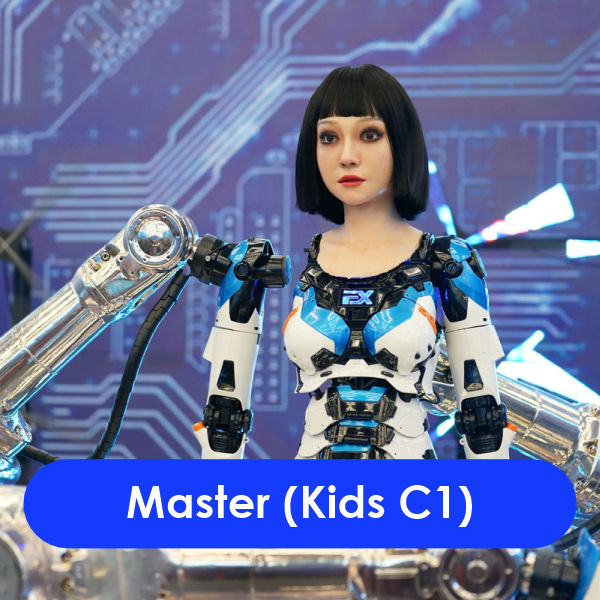Какой тест вы хотите пройти?
.jpg)
Это отправная точка твоего английского путешествия. Путешествие, которое приведет тебя к пониманию базового английского языка, поможет научиться наслаждаться книгами, песнями, телевидением и фильмами на английском языке и завести международных друзей.
.jpg)
Этот уровень 1 (CEFR A1) охватывает все навыки и фокусируется на наиболее эффективных и действенных способах прогресса в английском языке. Вы научитесь инициировать простые дискуссии касающихся повседневной жизни и участвовать в них.
Вы получите возможность делать запросы, размещать заказы и беспрепятственно решать различные ситуации, независимо от того, имеете ли вы дело с друзьями, семьей или повседневными ситуациями.
Этот курс направлен на развитие базовых навыков чтения и письма, необходимых в повседневной жизни.
К концу курса вы будете лучше подготовлены к простым повседневным взаимодействиям.
Начать
Этот курс призван помочь вам уверенно вести базовые деловые переговоры. Вы научитесь инициировать и участвовать в простых дискуссиях, касающихся рабочего места, например, спрашивать о недавней командировке коллеги или узнавать о событиях, связанных с работой.
Вы сможете делать запросы, размещать заказы и обрабатывать транзакции независимо от того, работаете ли вы с поставщиками, клиентами или коллегами.
Этот курс направлен на развитие базовых навыков чтения и письма, необходимых для бизнеса. Вы сможете понимать электронные письма и сообщения, связанные с бизнесом, с учетом различных личных мнений и точек зрения.
К концу курса вы будете лучше подготовлены к повседневному деловому общению.
Начать.jpg)
Продвигайся вперед и продолжай свое путешествие. Ты сможешь понять больше информации и основных инструкций, участвовать в простых беседах, заполнять формы курсовых заданий и писать заметки.

Этот курс призван помочь вам уверенно вести базовые деловые переговоры. Вы научитесь инициировать и участвовать в простых дискуссиях, касающихся рабочего места, например, спрашивать о недавней командировке коллеги или узнавать о событиях, связанных с работой.
Вы узнаете, как действовать в ситуациях, связанных с обслуживанием, особенно в бизнес-контексте. Вы сможете делать запросы, размещать заказы и обрабатывать транзакции независимо от того, работаете ли вы с поставщиками, клиентами или коллегами.
Этот курс направлен на развитие базовых навыков чтения и письма, необходимых для бизнеса. Вы сможете понимать деловые письма/электронные письма и сообщения с учетом различных личных мнений и точек зрения.
К концу курса вы будете лучше подготовлены к повседневному деловому взаимодействию и сможете эффективно общаться в письменной форме для различных деловых целей, таких как написание электронных писем, заметок или простых отчетов.
Начать
Это пособие для учащихся уровня 2 (CEFR A2) с дополнительной практикой охватывает все навыки и фокусируется на наиболее эффективных и действенных способах достижения прогресса в английском языке. Учитесь дома или в дороге. Вы научитесь инициировать и участвовать в базовых дискуссиях, имеющих отношение к повседневной жизни.
Вы получите возможность делать простые запросы, размещать заказы и беспрепятственно решать различные ситуации, независимо от того, имеете ли вы дело с друзьями, семьей или повседневными ситуациями.
Этот курс направлен на развитие базовых навыков чтения и письма, необходимых в повседневной жизни.
К концу курса вы будете лучше подготовлены к базовым повседневным взаимодействиям.
Начать
.jpg)
Будь готов летать и писать по-английски; общаться в знакомых ситуациях; понимать и использовать основные фразы и выражения; и взаимодействовать с носителями английского языка.

Этот курс направлен на то, чтобы поднять ваши деловые переговоры на более высокий уровень. Вы разовьете навыки участия в более глубоких дискуссиях на рабочем месте, таких как переговоры, обновления проектов и беседы по решению проблем. К концу курса вы улучшите свою способность эффективно общаться в различных деловых контекстах.
На этом курсе вы улучшите свои языковые навыки для деловых сделок и обслуживания клиентов. Вы начнете осваивать основы, но также затронете и более сложные взаимодействия. Вы станете более опытными в разрешении сложных ситуаций, ведении переговоров и взаимодействии с поставщиками, клиентами или коллегами. Этот курс поможет вам ориентироваться в мире бизнеса.
Этот курс направлен на улучшение ваших навыков чтения и письма для профессионального делового общения. Вы сможете понимать и отвечать на широкий спектр деловой корреспонденции, включая электронные письма, письма и отчеты с различными мнениями и точками зрения. Вы приобретете опыт работы с деловыми документами, включая официальные электронные письма, убедительные предложения и короткие отчеты. К концу курса вы будете исключительно хорошо подготовлены к профессиональному общению в различных сложных бизнес-сценариях.
К концу курса вы будете лучше подготовлены к повседневному деловому взаимодействию и сможете эффективно общаться в письменной форме для различных деловых целей, таких как написание электронных писем, заметок или простых отчетов.
Начать
Это пособие для учащихся уровня 3 (CEFR AB1) с дополнительной практикой охватывает все навыки и фокусируется на наиболее эффективных и действенных способах достижения прогресса в английском языке. Учитесь дома или в дороге. Вы научитесь инициировать и участвовать в более сложных дискуссиях, касающихся повседневной жизни.
Вы получите возможность делать более сложные запросы, размещать заказы и беспрепятственно решать различные ситуации, независимо от того, имеете ли вы дело с друзьями, семьей или повседневными ситуациями.
Этот курс направлен на развитие более сложных навыков чтения и письма, применимых в повседневной жизни.
К концу курса вы будете лучше подготовлены к более сложным повседневным взаимодействиям.
Начать

Это пособие для учащихся уровня 4 (CEFR B2) с дополнительной практикой охватывает все навыки и фокусируется на наиболее эффективных и действенных способах достижения прогресса в английском языке. Учитесь дома или в дороге. Вы научитесь инициировать и участвовать во все более сложных дискуссиях, касающихся повседневной жизни.
Вы получите возможность делать все более сложные запросы, размещать заказы и беспрепятственно решать различные ситуации, независимо от того, имеете ли вы дело с друзьями, семьей или повседневными ситуациями.
Этот курс направлен на развитие еще более сложных навыков чтения и письма, применимых в повседневной жизни.
К концу курса вы будете лучше подготовлены к более сложным повседневным взаимодействиям.
Начать.jpg)
Если ты уже достиг высокого уровня английского, этот курс для тебя. На этом этапе ты сможешь понимать сложные грамматические формы и иметь богатый словарный запас; комфортно участвовать в общем быстром разговоре; уметь писать абзацы и делать быстрые заметки.

Этот курс поможет поднять ваши навыки делового общения на более высокий уровень. Вы разовьете способность участвовать в более глубоких дискуссиях, имеющих отношение к рабочему месту, таких как более сложные переговоры, обновления проектов и беседы по решению проблем. К концу курса вы отточите свою способность эффективно общаться в разнообразных и сложных бизнес-контекстах.
На этом курсе вы приобретете языковые навыки, необходимые для ведения деловых сделок и эффективного обслуживания клиентов. Вы познакомитесь с основами, а также начнете более сложные взаимодействия. Вы приобретете навыки разрешения более сложных ситуаций, ведения переговоров по сделкам и уверенного взаимодействия с поставщиками, клиентами или коллегами. Этот курс поможет вам ориентироваться в деловом мире с большей уверенностью и компетентностью.
Этот курс направлен на достижение сильных навыков чтения и письма для профессионального делового общения. Вы сможете понимать и отвечать на широкий спектр деловой корреспонденции, включая электронные письма, письма и отчеты с различными мнениями и точками зрения. Вы приобретете опыт создания высокоэффективных деловых документов, включая официальные электронные письма, убедительные предложения и краткие отчеты. К концу курса вы будете хорошо подготовлены к успешному профессиональному общению в различных бизнес-сценариях.
Начать
Это пособие для студентов с практикой экстра-уровня 5 (CEFR C1) всесторонне рассматривает все языковые навыки, уделяя особое внимание эффективным стратегиям продвижения по английскому языку. Он предназначен для обучения как дома, так и в дороге. Вы овладеете искусством инициировать и активно участвовать в сложных дискуссиях, касающихся повседневной жизни.
Вы приобретете навыки делать запросы, размещать заказы и умело справляться с различными социальными сценариями, будь то с друзьями, семьей или в повседневных ситуациях.
В этом курсе основное внимание уделяется совершенствованию сложных навыков чтения и письма, применимых к реальным контекстам.
После прохождения курса вы будете хорошо подготовлены к еще более сложным повседневным взаимодействиям.
Начать.jpg)
Ты всего в одном шаге от профессионала. Ты бегло общаешься с носителями языка и своими одноклассниками из разных стран; ты с успехом овладел грамматическими формами и с удовольствием применяешь свои навыки при письме; кажется уже нет ничего сложного для тебя и ты получаешь удовольствие от каждого общения по-английски.

Этот курс предназначен для людей с уровнем B1+, желающих еще больше улучшить свои навыки делового общения. Вы разовьете способность участвовать в сложных дискуссиях и переговорах, имеющих отношение к рабочему месту. Охватываемые темы включают переговоры, обновления проектов и эффективные беседы по решению проблем. К концу курса вы приобретете хорошие коммуникативные навыки, которые можно будет использовать в бизнес-контексте.
На этом курсе, предназначенном для тех, кто хочет достичь уровня B1+, вы овладеете языковыми навыками для ведения деловых переговоров и оказания услуг клиентам. Вы ознакомитесь с основами, а также изучите расширенные взаимодействия. К концу курса вы научитесь справляться с более сложными ситуациями, вести переговоры по сделкам и взаимодействовать с поставщиками, клиентами и коллегами.
Этот курс поможет вам улучшить навыки чтения и письма для профессионального делового общения. Вы будете уметь понимать и отвечать на широкий спектр деловой корреспонденции, включая электронные письма, письма и отчеты с различными мнениями и точками зрения. Вы приобретете опыт написания эффективных и убедительных деловых документов, таких как официальные электронные письма, убедительные предложения и краткие отчеты. К концу курса вы будете хорошо подготовлены к профессиональному общению в различных бизнес-сценариях.
Начать
Это учебное пособие для учащихся уровня 5 (CEFR C2) с дополнительной практикой предлагает комплексный подход ко всем языковым навыкам, уделяя особое внимание высокоэффективным методам продвижения по английскому языку. Он предназначен как для самостоятельного изучения, так и для обучения в движении. Вы овладеете искусством инициировать и активно участвовать в сложных дискуссиях, касающихся различных аспектов повседневной жизни.
Вы научитесь формулировать запросы, давать указания и беспрепятственно управлять различными социальными сценариями, как в личной, так и в профессиональной обстановке.
В этом курсе основное внимание уделяется развитию продвинутых навыков чтения и письма, необходимых для реальных приложений.
После прохождения курса вы будете полностью готовы уверенно справляться даже с самыми сложными повседневными взаимодействиями.
Начать
Этот курс предназначен для людей уровня B2, которые хотят улучшить свои навыки делового общения и ведения переговоров. Вы изучите сложные темы, такие как сложные переговоры по контрактам, стратегическое планирование и разрешение споров, что подготовит вас к успеху в деловых ситуациях, где ставки высоки.
В этом курсе, предназначенном для участников уровня B2, вы освоите языковые навыки, необходимые для проведения более сложных бизнес-транзакций и эффективного управления клиентами. Вы обретете уверенность в разрешении сложных ситуаций и заключении сложных сделок. Вы также изучите стратегии построения прочных отношений с клиентами при взаимодействии с поставщиками, клиентами или коллегами. Этот курс подготовит вас к процветанию в постоянно меняющемся мире бизнеса.
Ваши навыки чтения и письма для профессионального делового общения будут улучшены до уровня B2. Этот курс поможет вам понимать и отвечать на различные сообщения, связанные с бизнесом, включая сложные электронные письма, официальные письма и подробные отчеты с различными мнениями. Вы также научитесь составлять убедительные предложения, подробные отчеты и официальные бизнес-планы, что позволит вам к концу курса быть хорошо подготовленными к продвинутому профессиональному общению в сложных бизнес-контекстах.
Начать.jpg)
Это пособие для учащихся уровня 4 (CEFR B2) с дополнительной практикой охватывает все навыки и фокусируется на наиболее эффективных и действенных способах достижения прогресса в английском языке. Учитесь дома или в дороге. Вы научитесь инициировать и участвовать во все более сложных дискуссиях, касающихся повседневной жизни.
Вы получите возможность делать все более сложные запросы, размещать заказы и беспрепятственно решать различные ситуации, независимо от того, имеете ли вы дело с друзьями, семьей или повседневными ситуациями.
Этот курс направлен на развитие еще более сложных навыков чтения и письма, применимых в повседневной жизни.
К концу курса вы будете лучше подготовлены к более сложным повседневным взаимодействиям.
Начать
Этот курс предназначен для людей с уровнем B2+, которые стремятся улучшить свои навыки делового общения и способности вести переговоры. Вы будете участвовать в сложных дискуссиях и переговорах в профессиональной сфере, охватывая более сложные темы, планирование и заключение сделок. К концу курса вы отточите свои навыки общения и ведения переговоров, которые можно будет использовать в сложных бизнес-сценариях.
На этом курсе вы улучшите свои языковые навыки для сложных деловых операций и взаимоотношений с клиентами. Вы будете взаимодействовать с большей уверенностью, справляться со сложными ситуациями и заключать трудные сделки. Вы рассмотрите стратегии управления взаимоотношениями с клиентами, обеспечивающие профессиональное взаимодействие с поставщиками, клиентами или коллегами. Этот курс позволит вам добиться успеха в динамичном и конкурентном мире бизнеса.
Этот курс направлен на достижение совершенства в навыках чтения и письма для профессионального делового общения. Вы сможете понимать и отвечать на широкий спектр деловой корреспонденции, включая электронные письма, официальные письма и подробные отчеты с различными мнениями и точками зрения. Вы получите опыт написания влиятельных и эффективных деловых документов, таких как убедительные предложения, финансовые отчеты и бизнес-планы. К концу курса вы будете хорошо подготовлены к продвинутым профессиональным коммуникациям в бизнес-среде.
Начать
Это пособие для студентов с практикой экстра-уровня 5 (B2+) всесторонне рассматривает все языковые навыки, уделяя особое внимание эффективным стратегиям продвижения по английскому языку. Он предназначен для обучения как дома, так и в дороге. Вы овладеете искусством инициировать и активно участвовать в сложных дискуссиях, касающихся повседневной жизни.
Вы приобретете навыки делать запросы, размещать заказы и умело справляться с различными социальными сценариями, будь то с друзьями, семьей или в повседневных ситуациях.
В этом курсе основное внимание уделяется совершенствованию сложных навыков чтения и письма, применимых к реальным контекстам.
После прохождения курса вы будете хорошо подготовлены к еще более сложным повседневным взаимодействиям.
Начать
Содержимое этого курса предназначено для людей с уровнем C1, которые хотят улучшить свои навыки делового общения и стратегические лидерские способности. Будут рассмотрены передовые коммуникационные подходы и стратегии для деловых контактов на высоком уровне, такие как планирование, лидерское общение и кризисное управление. К концу курса вы будете обладать знаниями и навыками, позволяющими эффективно руководить и общаться в сложных деловых условиях.
В этом курсе для участников уровня C1 вы поймете сложности коммерческих транзакций и сможете уверенно ориентироваться на мировых рынках. Будут рассмотрены передовые бизнес-стратегии, управление рисками и навыки ведения переговоров для международных деловых операций. Вы также получите представление о тенденциях мирового рынка и получите представление о межкультурной деловой практике. Этот курс подготовит вас к успеху в современной глобальной бизнес-среде.
Вы сможете с легкостью понимать и отвечать на различные сложные деловые документы, такие как исполнительные резюме, финансовые отчеты и контракты. Вы приобретете навыки создания деловых документов, включая предложения для руководителей, планы корпоративных коммуникаций и стратегические бизнес-планы. По окончании курса вы будете невероятно хорошо подготовлены к тому, чтобы преуспеть в лидерских и профессиональных коммуникационных должностях в сложных корпоративных условиях.
Начать
Это учебное пособие для учащихся уровня 5 (C1) с дополнительной практикой предлагает комплексный подход ко всем языковым навыкам, уделяя особое внимание высокоэффективным методам продвижения по английскому языку. Он предназначен как для самостоятельного изучения, так и для обучения в движении. Вы овладеете искусством инициировать и активно участвовать в сложных дискуссиях, касающихся различных аспектов повседневной жизни.
Вы научитесь формулировать запросы, давать указания и беспрепятственно управлять различными социальными сценариями, как в личной, так и в профессиональной обстановке.
В этом курсе основное внимание уделяется развитию продвинутых навыков чтения и письма, необходимых для реальных приложений.
После прохождения курса вы будете полностью готовы уверенно справляться даже с самыми сложными повседневными взаимодействиями.
Начать.jpg)
Это учебное пособие для учащихся уровня 5 (C1) с дополнительной практикой предлагает комплексный подход ко всем языковым навыкам, уделяя особое внимание высокоэффективным методам продвижения по английскому языку. Он предназначен как для самостоятельного изучения, так и для обучения в движении. Вы овладеете искусством инициировать и активно участвовать в сложных дискуссиях, касающихся различных аспектов повседневной жизни.
Вы научитесь формулировать запросы, давать указания и беспрепятственно управлять различными социальными сценариями, как в личной, так и в профессиональной обстановке.
В этом курсе основное внимание уделяется развитию продвинутых навыков чтения и письма, необходимых для реальных приложений.
После прохождения курса вы будете полностью готовы уверенно справляться даже с самыми сложными повседневными взаимодействиями.
Начать ru
ru